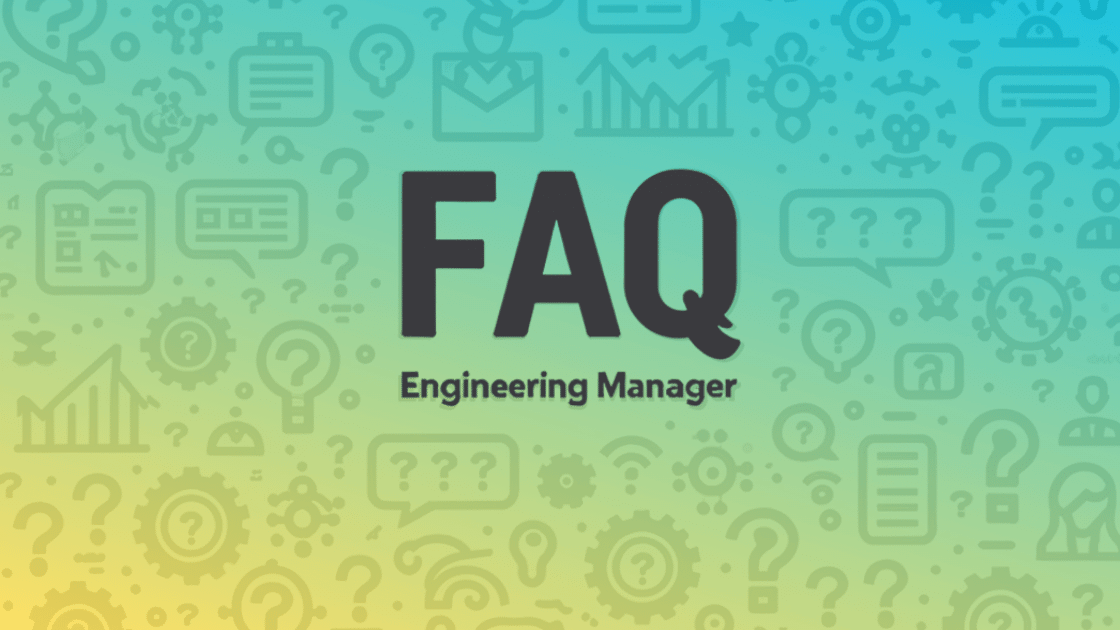Engineering Manager in Japan - Everything You Need to Know
Engineers are people.
People need managers.
Arjab Dhakal’s clients need Engineering Managers.
That’s why I reached out to Arjab Dhakal.
He told me to call him Ari.
Ari is a technical recruiter in Tokyo and is currently working with his clients to hire Engineering Managers. He was able to give insights into what Japanese clients are looking for in the applicants they hire.
We covered the responsibilities, requirements, day-to-day tasks, and tips to help you land the job. Ari even shared why he has seen people get rejected.
There’s a lot to cover, so let’s get started.
What is an Engineering Manager?
The role of an Engineering Manager in Japan is to oversee the engineering team to ensure that the software is being developed according to the requirements set out by the product team.
This requires you to hire, train, and motivate your team as well as steer the development. There are also different types of engineering managers.
Types of Engineering Managers:
Depending on the size and structure of the company, your role may vary.
In smaller companies, you will be a general Engineering Manager, while in larger organizations, you will oversee specialized areas like Mobile Engineering, Infrastructure, or Data Science.
Here are specifics about the Engineering Manager role:
Technical and Business Acumen: As an Engineering Manager, you are expected to have a strong understanding of both the technical and business aspects of your projects. This includes aligning your team’s work with the company’s mission and future goals.
Code Review and Deployment: You will oversee code reviews and have the final say in deployments. Without your approval, deployments will not proceed.
Recruitment and Career Development: A key responsibility is hiring and developing your team. This involves conducting interviews, providing regular feedback, and playing a crucial role in their career progression.
Interdepartmental Collaboration: You will frequently collaborate with project managers and product managers, providing input on project scope and feasibility, and sometimes even influencing the overall development strategy.
Responsibilities of an Engineering Manager in Japan
As an Engineering Manager, you will be responsible for various tasks including:
Recruiting software engineers and managing the team.
Setting short- and long-term goals.
Providing career development through regular feedback.
Code and document reviews.
Managing priorities in bug fixes and feature development.
Making technical judgments.
Example Tech Stack
You'll likely work with a diverse tech stack, including:
Server-side: Scala (Play Framework), C++
Front-end: TypeScript, React, Redux
Mobile: Kotlin and Swift for Android and iOS, respectively
Infrastructure: GCP
Database: MySQL
Tools: GitHub for code management and Slack for communication
Now, let's break down what you will actually be doing daily, except on weekends and holidays:
Day-to-Day
Your day will be filled with meetings, goal setting, one-on-ones with the team, career development, and team motivation.
Morning Routine
Start with a Brief Team Meeting: You'll typically begin your day with a quick stand-up meeting with your team. This is a time to discuss the day's objectives, any pressing issues, and to ensure everyone is aligned on their tasks.
Review Emails and Messages: After the meeting, you'll spend some time going through your inbox and communication channels like Slack. This helps you stay updated on any overnight developments and prioritize your tasks for the day.
Goal Setting and Planning: Next, you'll dedicate some time to planning and setting both short-term and long-term goals for your team. This might involve strategizing on project timelines, resource allocation, or tackling any immediate challenges.
Midday Activities
One-on-One Meetings: A significant part of your day involves conducting one-on-one meetings with team members. These are crucial for understanding their challenges, providing feedback, and helping them set specific career goals.
Lunch Break: Take a well-deserved break! It's important to step away from work to recharge.
Technical Oversight: Post-lunch, you might find yourself reviewing code, overseeing the technical aspects of projects, and ensuring that everything aligns with the company's standards and goals.
Afternoon Tasks
Meeting with Other Departments: As an Engineering Manager, you'll often collaborate with other departments. This could involve meetings with the product management team to discuss project feasibility or with HR for recruitment strategies.
Administrative Work: You'll also handle administrative tasks, like budgeting or preparing reports, that are essential for the smooth operation of your team.
Strategy and Development: The latter part of your day might be dedicated to strategic planning. This involves thinking about how to improve team performance, system enhancements, or even considering a tech stack update.
Wrapping Up
End-of-Day Team Check-In: Before the day ends, a quick check-in with your team to ensure that all tasks are on track can be helpful.
Prepare for the Next Day: Finally, you'll set up your agenda for the next day, ensuring you're prepared for any meetings or key tasks.
Personal Development: Sometimes, you might spend time on your own professional development, like staying updated on industry trends or learning new technical skills.
What are the requirements to make this your everyday like as an Engineering Manager in Japan?
Requirements
TL;DR
A Master's degree in computer science or related field, or equivalent experience.
Proficiency in Japanese (N2 level) and/or English.
Experience managing multiple engineers.
Educational and Professional Background
Master's Degree in Computer Science or Related Field: A higher educational background in computer science or a similar technical field is highly preferred, if not essential. This provides a strong foundational understanding of the technical aspects you will manage.
Relevant Technical Experience: You should have a deep understanding of a specific technical area. This could be in software development, cloud infrastructure, or any relevant technical field that aligns with the company's needs.
Software Development Background: It's beneficial to have a history in software development, preferably as a backend developer. This experience is valued as it provides insight into the technical challenges and solutions your team may encounter.
Language Skills
Japanese Language Proficiency: Proficiency in Japanese is crucial, ideally at an N2 business level. This is essential for effective communication within most Japanese work environments.
English Language Skills: Excellent communication skills in English are also important, especially for international or globally-focused companies.
Managerial Experience
Experience Managing Engineers: Direct experience in managing multiple engineers is a key requirement. This includes not just overseeing their day-to-day work, but also guiding their career development and setting goals.
Leadership in Technical Teams: Experience as a tech lead or team lead is highly advantageous, even if you haven’t held an official ‘Engineering Manager’ title. This demonstrates your ability to guide technical teams and make informed decisions.
Project Management Experience: While a project management background alone isn't preferred, having some experience in this area can be beneficial, especially if it's combined with strong technical skills.
Technical Skills and Knowledge
Understanding of Software and Cloud Technologies: Knowledge of software development processes and cloud technologies is essential. This is especially relevant if the role involves overseeing cloud migrations or infrastructure management.
Familiarity with Relevant Tech Stacks: Understanding the specific tech stack used by the company, such as Scala, C++, TypeScript, React, or cloud platforms like GCP, is beneficial.
Personal Attributes
Alignment with Company Mission and Values: A strong understanding and empathy for the company’s mission and values are critical. This ensures that you are not just a technical leader but also a cultural fit within the organization.
Communication and Empathy: Excellent communication skills, coupled with empathy, are vital. You need to effectively communicate with your team, other departments, and stakeholders, understanding their perspectives and needs.
Here are the 5 skills that Ari said you should focus on to get a job as an Engineering Manager.
5 Skills That Will Make You Stand Out
1. Japanese Language Proficiency
Why It Matters: In the Japanese work environment, proficiency in Japanese is crucial for effective communication with your team, stakeholders, and in navigating the business culture. It's essential for daily operations and integration into the workplace.
How to Build It: Engage in language courses, either online or in-person. Regular practice, immersion in the language, and utilizing language exchange meetups or language partners can accelerate your learning.
2. Specialization in a Technical Field
Why It Matters: Technical specialization (like mobile, web, or infrastructure) demonstrates your depth of knowledge and expertise, making you a valuable asset for tackling specific challenges and leading teams in those areas.
How to Build It: Focus on gaining hands-on experience in your chosen field. Attend workshops, seminars, and pursue relevant certifications. Working on projects, either professionally or as personal initiatives, can also deepen your expertise.
3. Team Leading Experience
Why It Matters: Experience in leading teams is crucial as it shows you can manage, motivate, and guide a group towards achieving goals. It's about demonstrating your ability to handle responsibilities beyond individual contributions.
How to Build It: Seek opportunities to lead projects or small teams in your current role. Volunteering for leadership roles in community or professional organizations can also provide valuable experience.
4. Empathy and Communication
Why It Matters: Empathy allows you to understand and relate to your team's challenges, fostering a supportive environment. Effective communication is key to conveying ideas, making decisions, and maintaining team harmony.
How to Build It: Practice active listening and strive to understand others' perspectives. Engage in courses or training that focus on emotional intelligence and communication skills. Regularly soliciting feedback can also help improve these skills.
5. A Master's Degree for Startups
Why It Matters: In startups, a Master’s degree often signifies a higher level of expertise and theoretical knowledge, which can be crucial in the fast-paced, innovative environment of a startup.
How to Build It: Pursuing a Master's degree in a relevant field will not only provide advanced knowledge but also opportunities for networking and exposure to the latest industry trends and research.
What is the career path for you passionate manager of engineers?
Career Progression
The career path typically progresses from an Engineering Manager to a Senior Engineering Manager, and then to VP of Engineering or CTO.
Starting Point: Technical Roles
Senior Backend Engineer: Starting as a backend engineer provides a strong foundation in software development.
Technical Lead: A pivotal role where you lead projects and small teams, honing your leadership and technical skills.
Transition to Management
Assistant Manager: This role is often a first step into management, allowing you to gain experience in overseeing teams and projects.
Project Manager (Alternative Path): Some may transition through a project management role, focusing on the planning and execution of projects.
Core Engineering Management Roles
Engineering Manager: A key role where you manage the engineering team, responsible for both technical oversight and team leadership.
Senior Engineering Manager: With more experience, you move up to manage larger teams or multiple projects, involving higher levels of strategic planning and decision-making.
Advanced Leadership Positions
VP of Engineering: This senior leadership role involves overseeing the entire engineering department, strategic planning, and alignment with business goals.
CTO (Chief Technology Officer): As a CTO, you are responsible for the overall technological direction of the company, often involving executive-level decision-making and strategy.
Ready to apply? Use this link to reach out to us!
Before you do, here are some tips from Ari to help you land the job.
Tips for Landing the Job
TL;DR
Highlight any experience with programming languages such as Go, Python, Java, JavaScript, Scala , or Rust.
Ensure your skills match the company's tech stack.
In your resume, separate soft and hard skills, and detail your management experience.
During interviews, relate your experience to the company's operations using the STAR method.
Ideal Candidate
You should have a background in software development rather than coming from a project manager background. Experience in hardware or telecom may pose a challenge due to differences in the tech stack. However, if you have experience in areas like cloud infrastructure, this can be beneficial, especially if the role involves overseeing cloud migrations.
Resume Tips
Highlight Relevant Skills: Ensure your resume prominently features both soft and hard skills. It's important to make it clear that you have the necessary management experience.
Separate Sections for Different Skills: Organize your resume with distinct sections for technical skills and management skills. This helps in showcasing your comprehensive skill set effectively.
Detail Your Experiences: For each role you've held, divide your responsibilities into general tasks and management-specific tasks. This distinction helps to highlight your progression into management roles.
Showcase Results: Don’t just list what you did; focus on the results. For example, mention how your one-on-one meetings with team members led to promotions or other successes.
Project Descriptions: Include descriptions of projects you've worked on, ideally in a concise format – about three bullet points per project. This gives a clear picture of your hands-on experience and contributions.
Interview Tips
Company Research: Show that you have done thorough research about the company you are interviewing with. Relate your experience to what the company does.
Relate Past Experiences to the Job: Discuss your previous experiences in a way that makes them relevant to the position you are applying for. Explain how your skills and experiences can contribute to the company's needs and goals.
Communication Skills: Be prepared to discuss how you have handled challenges as an engineering manager. Use the STAR (Situation, Task, Action, Result) method to structure your responses clearly and effectively.
System Design Knowledge: Be ready to talk about system design, especially if the role involves a technical component. You should be able to think through how the entire tech stack works and discuss it confidently.
Ask In-Depth Questions: Inquire about the company’s internal structure, the number of teams, team sizes, collaboration methods, etc. This shows your interest in the company and helps you understand the role better.
Scenario-Based Questions: Be prepared for hypothetical scenarios. For example, how you would handle a specific management challenge, or how you would approach a particular technical problem.
STAR Interview Method for Engineering Managers
The STAR method offers an effective framework for answering behavioral interview questions, especially in roles that combine technical and managerial responsibilities like an Engineering Manager. This method stands for Situation, Task, Action, and Result.
Situation
Start by setting the scene of a specific challenge or scenario you encountered in your role. Provide enough detail to help the interviewer understand the context and complexity.
Example: "In my previous role as an Engineering Manager, we faced a critical challenge when our software development project was falling behind schedule due to technical complexities and coordination issues among teams."
Task
Explain the specific task or responsibility you had in this situation. Clarify the obstacle or challenge you needed to address.
Example: "My key responsibility was to get the project back on track without compromising on quality. This involved identifying the bottlenecks in our development process and devising a strategy to enhance team coordination and efficiency."
Action
Discuss the specific actions you took to address the task. This is where you highlight your problem-solving skills, technical knowledge, and leadership abilities.
Example: "I initiated a series of collaborative sessions between the backend, frontend, and QA teams to pinpoint inefficiencies. Based on this, I implemented an improved Agile process with more frequent stand-ups and inter-team reviews. I also introduced new tools for continuous integration and deployment to streamline our workflow."
Result
Conclude with the results of your actions. Use quantitative data to underscore your success, if possible.
Example: "These measures led to a 40% reduction in development time and a 20% increase in overall project efficiency. We successfully met the project deadline, and the improved processes significantly boosted team morale and productivity."
For an in-depth understanding of how to use the STAR method in interviews for engineering management positions, you can refer to our comprehensive guide here.
Let’s go over the reasons Ari has seen people get rejected.
Why People Get Rejected
Common reasons for rejection include lack of a Master's degree, insufficient managerial experience, or a mismatch in technical skills.
Lack of Advanced Educational Credentials
No Master’s Degree: Particularly in startups, the absence of a Master’s degree can be a significant drawback. This qualification is often seen as a testament to a candidate's advanced technical knowledge and analytical skills.
Insufficient Experience
Inadequate Managerial Experience: Candidates with limited experience in managing teams, especially in a technical environment, often face rejection. Engineering Manager roles require proven leadership and the ability to guide and develop a team.
Limited Lead Experience: Not having enough experience as a tech lead or in a similar role can also be a reason for rejection. These roles are seen as stepping stones to an Engineering Manager position, demonstrating the candidate’s ability to handle responsibility and lead projects.
Mismatch in Technical Skills
Incompatible Tech Stack Experience: Candidates who lack experience in the specific technologies used by the company (e.g., Scala, C++) may not be considered suitable. A strong alignment between a candidate's technical expertise and the company’s tech stack is crucial.
Lack of Relevant Industry Experience: Experience in unrelated technical fields (like hardware or telecom) might not translate well to the specific needs of a software development role, leading to challenges in adapting to the new environment.
Resume and Interview Performance
Underwhelming Resume: A resume that fails to effectively highlight relevant skills, experiences, and accomplishments can lead to rejection. Candidates must demonstrate their fit for the role.
Poor Interview Performance: Inability to effectively communicate past experiences, especially using methodologies like the STAR method, or failing to show how their experience aligns with the company’s needs can be detrimental.
Company-Specific Reasons
Lack of Big-Name Companies on Resume: Some companies may prefer candidates with experience working in well-known or larger organizations, as this can be perceived as a marker of a candidate's ability to handle high-pressure and complex environments.
Cultural Fit: Candidates who do not seem to align with the company’s culture, mission, or values may also face rejection. Cultural fit is important in Japan, where work culture and team harmony are highly valued.
FAQ
Q1: What's the difference between an Engineering Manager and a Technical Product Manager?
A: The main difference lies in the focus areas: Engineering Managers are more involved in technical aspects and team management, while Technical Product Managers focus on product features and strategy.
Q2: What are the key differences between an Engineering Manager and a Project Manager?
A: An Engineering Manager typically focuses on the technical aspects and team management within the engineering department, while a Project Manager is more concerned with project timelines, budgets, and overall project delivery across departments.
Q2: How important is it for an Engineering Manager to have hands-on coding experience?
A: Hands-on coding experience is highly beneficial for an Engineering Manager. It provides a deeper understanding of the technical challenges your team faces and enables you to contribute more effectively to technical discussions and decision-making.
Q3: Can I become an Engineering Manager without a background in software engineering?
A: While it's more challenging, it's not impossible. However, you would need to demonstrate a strong understanding of software development processes and possess excellent leadership and project management skills.
Q4: What is the typical size of the team that an Engineering Manager oversees in Japan?
A: The team size can vary significantly depending on the company's size and structure. It could range from a small team of a few individuals to larger groups divided into sub-teams, each with its lead.
Q5: How does an Engineering Manager stay updated with the latest technology trends?
A: Regularly attending industry conferences, participating in professional networks, engaging in continuous learning through courses and certifications, and staying active in tech communities are common ways to stay updated.
Q6: Is knowledge of Japanese business culture important for this role?
A: Yes, understanding Japanese business culture is crucial, especially in terms of communication, decision-making processes, and team dynamics. This knowledge helps in effectively managing and leading teams within the Japanese context.
Q7: How does an Engineering Manager contribute to the strategic planning of a company?
A: An Engineering Manager plays a key role in strategic planning by aligning the engineering team’s efforts with the company’s long-term goals, proposing technical strategies, and ensuring the team’s work contributes to overall business objectives.
Q8: What are some common challenges faced by Engineering Managers in Japan?
A: Common challenges include navigating cultural differences, managing team dynamics, balancing technical and managerial responsibilities, and ensuring the timely delivery of high-quality software products.
Q9: How does an Engineering Manager measure team performance?
A: Performance can be measured through various metrics such as project delivery timelines, code quality, innovation, team member growth and development, and overall contribution to business goals.
Q10: What role does an Engineering Manager play in hiring and team composition?
A: An Engineering Manager is often involved in the recruitment process, assessing technical skills and cultural fit, and plays a key role in deciding the composition of the team to ensure a diverse and effective group.
Last Note from Ari
Don't be intimidated by the requirements for an Engineering Manager role.
Even if you have only a couple of years of tech lead experience, you still have a chance.
This is not Sales or business, software development moves much faster.
If you are unsure if you qualify, apply and find out.
We can help find a position that you would be excited about.
Message us using this link to learn what Engineering Manager positions are currently open in Japan.































